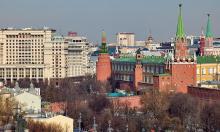Social calamity
The truth about Covid: Social calamity awaits us

The media reports about Covid are alarmingly naive, pulling the wool over people's eyes. Let us face some straight facts: social calamity awaits us.
Where have you heard this before: "Ah it's only a mild little thing for most people, you don't need to wear a mask, it's better to catch it".
For most people who catch Covid, it is very uncomfortable, twice as bad as Influenza. For some it is very mild, for others it merits a stay in hospital and for others, a stay in an Intensive Care Unit. For others, it becomes a prolonged disease which ruins the quality of life, provoking extreme fatigue, body pains and the loss of the senses of taste and smell (Long Covid). For others, the saga ends in a coffin.
The magical vaccine which will make things go back to normal
So let us not belittle the potential dangers of Covid and let us not overestimate the advent of the vaccine, taken as some kind of global saviour and peddled as something to expect before Christmas or in early 2021. This week the headlines read "Macron says Covid will be with us until next Summer", preparing those who expect a turnaround any time soon for a worse scenario but only another six or seven months of the same.
A vaccine is a prevention, not a cure
Let us get real here. Vaccination campaigns are a prevention, not a cure. Has the Influenza virus (or better, strains of virus) been halted by vaccination campaigns? No, it comes back every year. While smallpox has been eradicated through the administration of vaccines, other viruses have not and there is no evidence to point towards a scenario anything different from a lasting, permanent presence of Covid in our societies. It will be with us next Summer, next Winter (2021) and until an effective medication is found, societies will be struggling among second and tenth waves, hospitals full to capacity, lockdowns, partial confinements, schools opening and closing, businesses going under, people getting second infections just months after the first. The air industry will face challenging conditions, as will hospitality and restauration (hotels and restaurants), leisure and culture.
Social calamity awaits us
Unless drastic actions are taken by governments, social calamity awaits us. At the beginning of the pandemic, people used to ask "Do you actually know anyone who has it?" and now the net draws closer as some of us have lost close family members (myself included) and all of us know someone who had it or who died from it.
The moratoriums on paying rent have been extended in most countries but the back-rent has not been written off. Those who have lost their jobs or who have experienced a reduction in income through Covid-19 may not be paying their utilities bills but when the moratorium ends, they will face a tsunami of unpaid bills to pay off, plus the normal bills which they have to pay every month. What are they, and governments, supposed to do?
Evict hundreds of thousands of people? And when the number becomes millions, when stocks rupture in supermarkets, when hospitals have to choose who gets the bed and who dies, when the virus is out of control in schools and Universities, when families do not have money to put food on the table, what is going to happen then? I will tell you: millions on the streets and a breakdown in public order, looting, arson, wanton violence and fringe elements fanning the flames and jumping on the bandwagon. A breakdown of society. It is called social calamity.
Let us get real, this thing is not going to disappear next March, it will be with us, like any other Coronavirus or Influenza virus, forever and the situation we are facing today will be prolonged for two years more, at the very least. It will only get better when we have an effective medication, as was the case with the HIV virus. Look how long that took.
Solutions
First: social distancing, face masks, inside spaces and outside the home. No hugging and kissing; extreme care this Christmas; when returning home, disinfect all surfaces touched, change clothes, wash them, have a shower; use hand sanitizer regularly; do not touch the face;
Second: tele-shopping; spray and wipe down all products before putting them away;
Third: distance working where possible; forget Team A and Team B. Everyone who can, works at home;
Fourth: with fewer people traveling to work, increase the number of public transportation units so that those who cannot work at home at least enjoy safer conditions;
Fifth: where possible, the education program to be delivered online, not as an online presential class but as an online resource accessible at any time, together with self-study exercises and answer keys, from the middle school upwards, through to and including higher education (University). Primary school pupils cannot follow this sort of program because they are incapable of sitting down at a screen for five hours a day and anyway the transmission of the virus from young kids to adults appears less common than adult-to-child transmission; these pupils could use the spaces vacated by the older school students so that social distancing becomes greater among them;
Sixth; face the facts. Covid-19 is the new kid on the block, thank God it does not have a mortality rate of 34% like MERS, its close cousin (Coronavirus); it will be here to stay and we should prepare not for another few months but another few years of the same. Key word; Patience;
Seventh: Governments and big institutions, service and utility providers, landlords, finance ministries, central banking authorities, must all pull together in think tanks and do what the economists are paid to do: produce solutions. Imposing vertical parameters which work during normal times on horizontal situations where there are a multitude of differentiating factors and vectors which make normal parameters unworkable, makes no sense.
I have long defended the birthright to a property, a home, and utilities, all for free, as was the case in the Soviet Union. If families had accommodation, electricity, gas, water, Internet for free, most of today's problems would be solved and Covid-19 would not be such an ogre looming on the horizon.
But this is not the path that governments have chosen and this is not the socio-economic model in vogue, yet anyway.
So while the equation which constitutes the current model does not have the notion "write-off" as a constant factor, the fact of the matter is that many people will not be able to pay their back-rents, many companies will not be able to pay their back-taxes, many electricity, water, gas, Internet bills will never be paid. Countries cannot manage to live with constraints on their public sector spending.
One solution would be (gasp!) to print money, even a temporary parallel currency with an end-date (extendable if necessary) to circulate alongside the currencies in use today and impose a ten-year temporary special period for the economy to absorb in the long-term.
What is fundamental, and I repeat myself, is that we are all in the same boat and for once, maybe people should not be selling weapons systems for people to murder each other and perhaps, for once, the special forces of certain countries should not be meddling in the internal affairs of sovereign states creating sabotge, havoc and terrorism and forcing those of others to intervene to defend the citizens whose lives are threatened by the former?
Photo: By Gustave Doré - Unknown source, Public Domain, https://commons.wikimedia.org/w/index.php?curid=524146
Subscribe to Pravda.Ru Telegram channel, Facebook, RSS!




